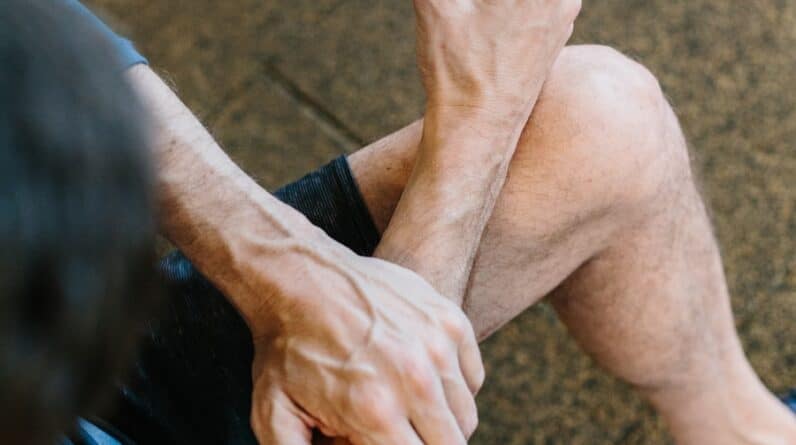You may often underestimate the profound impact that quality sleep has on your overall well-being. Sleep is not merely a time for your body to rest; it is a critical period during which your mind and body undergo essential processes that promote health and vitality. When you achieve restorative sleep, your body repairs itself, your brain consolidates memories, and your emotional health stabilizes.
The benefits of quality sleep extend beyond just feeling rested; they encompass improved cognitive function, enhanced mood, and a stronger immune system. Moreover, the consequences of inadequate sleep can be far-reaching. You might find that a lack of sleep affects your concentration, decision-making abilities, and even your physical health.
Chronic sleep deprivation can lead to serious health issues such as obesity, diabetes, cardiovascular diseases, and mental health disorders. Understanding the importance of quality sleep is the first step toward prioritizing it in your life. By recognizing how vital sleep is to your overall health, you can take proactive measures to ensure you get the restorative rest you need.
Key Takeaways
- Quality sleep is essential for overall health and well-being, impacting physical, mental, and emotional health.
- Lunesta, a prescription sleep aid, may have potential risks and side effects, including dizziness, drowsiness, and cognitive impairment.
- Natural alternatives for better sleep include establishing a consistent sleep schedule, creating a relaxing bedtime routine, and avoiding stimulants like caffeine and electronics before bed.
- Lifestyle changes such as regular exercise, healthy diet, and stress management can contribute to improved sleep quality.
- Herbal remedies like valerian root, chamomile, and lavender may offer natural relief for insomnia, but should be used with caution and under the guidance of a healthcare professional.
The Risks and Side Effects of Lunesta
Common Side Effects
You may experience side effects such as dizziness, headache, or an unpleasant taste in your mouth. More concerning are the reports of complex sleep behaviors, where individuals engage in activities like eating or driving while not fully awake.
Risk of Dependency
If you rely on this medication for an extended period, you may find it increasingly difficult to fall asleep without it. This can lead to a cycle of dependence that is hard to break. Furthermore, discontinuing Lunesta suddenly can result in withdrawal symptoms, including rebound insomnia, which can be even more distressing than the original sleep issues.
Make Informed Decisions
Understanding these risks is essential for making informed decisions about your sleep health.
Natural Alternatives for Better Sleep

As you explore options for improving your sleep quality, you might want to consider natural alternatives that can help you achieve restful nights without the side effects associated with prescription medications. One popular approach is the use of melatonin supplements. Melatonin is a hormone that regulates your sleep-wake cycle, and taking it in supplement form can help signal to your body that it’s time to wind down.
Many people find that melatonin helps them fall asleep faster and improves their overall sleep quality. Another natural alternative worth exploring is mindfulness meditation. Engaging in mindfulness practices before bedtime can help calm your mind and reduce anxiety, making it easier for you to drift off to sleep.
Techniques such as deep breathing exercises or progressive muscle relaxation can also be beneficial in preparing your body for rest. By incorporating these natural alternatives into your nightly routine, you may find that you can achieve better sleep without relying on medications.
Lifestyle Changes for Improved Sleep
In addition to natural remedies, making certain lifestyle changes can significantly enhance your sleep quality. You might start by establishing a consistent sleep schedule, going to bed and waking up at the same time every day, even on weekends. This consistency helps regulate your body’s internal clock and can make falling asleep and waking up easier over time.
Another important lifestyle change involves creating a conducive sleep environment. You may want to consider factors such as room temperature, noise levels, and light exposure. Keeping your bedroom cool, dark, and quiet can create an ideal atmosphere for sleep.
Additionally, limiting screen time before bed is crucial; the blue light emitted by phones and computers can interfere with melatonin production and disrupt your ability to fall asleep. By making these lifestyle adjustments, you can create a more favorable environment for restful nights.
Herbal Remedies for Insomnia
If you are interested in exploring herbal remedies for insomnia, there are several options that have been used for centuries to promote relaxation and improve sleep quality. One of the most well-known herbs is valerian root, which has been shown to have sedative properties that may help you fall asleep faster and improve overall sleep quality. You might find valerian root in various forms, including teas, capsules, or tinctures.
Another herbal remedy worth considering is chamomile tea. This gentle herb has calming effects that can help soothe your mind and prepare your body for rest. Drinking a warm cup of chamomile tea before bedtime can become a comforting ritual that signals to your body that it’s time to wind down.
Additionally, passionflower and lavender are other herbs known for their calming effects that may assist in alleviating insomnia symptoms. By incorporating these herbal remedies into your nightly routine, you may find a natural path toward better sleep.
Non-Prescription Sleep Aids

In addition to herbal remedies, there are various non-prescription sleep aids available that may help you achieve better rest without the risks associated with prescription medications. Over-the-counter options like diphenhydramine or doxylamine are antihistamines commonly used as sleep aids due to their sedative properties. While they can be effective for occasional sleeplessness, it’s important to use them sparingly as they may lead to grogginess the next day or other side effects.
Another option is the use of dietary supplements such as magnesium or L-theanine. Magnesium plays a vital role in regulating neurotransmitters that promote relaxation and sleep. L-theanine, an amino acid found in green tea, has been shown to promote relaxation without causing drowsiness during the day.
These non-prescription aids can be helpful tools in your quest for better sleep but should be used thoughtfully and in conjunction with other healthy sleep practices.
Cognitive Behavioral Therapy for Insomnia (CBT-I)
Cognitive Behavioral Therapy for Insomnia (CBT-I) is an evidence-based approach that has gained recognition as an effective treatment for chronic insomnia. If you find yourself struggling with persistent sleep issues, CBT-I may be worth considering as it addresses the underlying thoughts and behaviors contributing to your insomnia. This therapeutic approach involves working with a trained therapist who will guide you through techniques designed to change negative thought patterns related to sleep.
Through CBT-I, you will learn strategies such as stimulus control therapy and sleep restriction therapy that can help re-establish a healthy sleep pattern. Stimulus control therapy focuses on associating your bed with sleep rather than wakefulness by limiting activities like reading or watching TV in bed. Sleep restriction therapy involves limiting the amount of time spent in bed to increase sleep efficiency gradually.
By engaging in CBT-I, you may find that you develop healthier attitudes toward sleep and gain valuable tools for overcoming insomnia.
Consultation with a Healthcare Professional
Finally, if you continue to struggle with sleep despite trying various remedies and lifestyle changes, consulting with a healthcare professional is essential. A doctor or sleep specialist can help identify any underlying medical conditions contributing to your insomnia and recommend appropriate treatments tailored to your needs. They may conduct a thorough evaluation that includes discussing your medical history, current medications, and lifestyle factors affecting your sleep.
Additionally, healthcare professionals can provide guidance on safe usage of any medications or supplements you may be considering. They can also refer you to specialists who offer therapies like CBT-I if needed. Seeking professional advice ensures that you are taking informed steps toward improving your sleep health while minimizing potential risks associated with self-treatment.
In conclusion, understanding the importance of quality sleep is paramount for maintaining overall health and well-being. While medications like Lunesta may offer temporary relief from insomnia symptoms, they come with risks that warrant careful consideration. Exploring natural alternatives, lifestyle changes, herbal remedies, non-prescription aids, and therapeutic approaches like CBT-I can provide effective solutions for achieving better sleep without compromising your health.
Ultimately, consulting with a healthcare professional will empower you to make informed decisions about your sleep health journey.
If you are looking for ways to improve your overall health and well-being, incorporating supplements into your diet may be a beneficial option. According to a recent article on Health Nutrition Supplements, adding supplements to your daily routine can help fill in any nutritional gaps and support your body’s functions. In addition to improving your physical health, supplements can also play a role in cognitive health and focus. To learn more about the different types of nutrition and supplements available, check out the article on Health Nutrition Supplements.
FAQs
What is Lunesta?
Lunesta is a prescription medication used to treat insomnia. It belongs to a class of drugs called sedative-hypnotics and works by slowing down brain activity to help induce sleep.
What are some alternatives to Lunesta for better sleep?
Some alternatives to Lunesta for better sleep include over-the-counter sleep aids, natural remedies such as melatonin or valerian root, cognitive behavioral therapy for insomnia (CBT-I), and lifestyle changes such as maintaining a regular sleep schedule, reducing caffeine and alcohol intake, and creating a relaxing bedtime routine.
Are there any potential side effects of using Lunesta?
Yes, common side effects of Lunesta may include drowsiness, dizziness, headache, dry mouth, and unpleasant taste in the mouth. More serious side effects may include allergic reactions, memory loss, and complex sleep-related behaviors such as sleepwalking or driving while not fully awake.
Is it safe to use alternative remedies for sleep instead of Lunesta?
It is important to consult with a healthcare professional before using alternative remedies for sleep, especially if you have any underlying health conditions or are taking other medications. Natural remedies and lifestyle changes may be safe for some individuals, but it is important to ensure they do not interact with any existing treatments or conditions.






